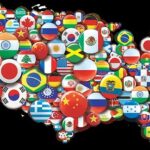Ignorance is a root cause of our race and culture wars. This is a bold statement. Let me describe my support and then discuss ways to overcome it. Most people and cultures fear what they do not understand. You can see this in your daily lives. Think about the anxiety most people face when they must do something new. Let us extend this to our current political and social climate. Politically, we currently ‘hate’ China. Our politicians are rattling sabers and describing how they “fought China” and describing how their rivals “gave in to China”. We hate China because our politicians and media tell us to hate them. We do not know anything about them, we just follow along.
A similar argument can be made about our race issues in America. Many of our parents taught us to ‘hate’ people who look differently than we do. This is not just a white hating black thing; many people of color are similarly taught to hate white people. As good children, we emulate our parents and hate the people that they hate. Many of our societal structures mirror this hate, with systemic racism and bias as custom or even law.
The counter to this familial and cultural hate is to learn more about those we hate. The only way to do this is to interact with the culture. Brad Pitt’s character in 7 Years in Tibet, did just this. He entered the country skeptical of the savages that lived there, wanting only to climb the mountains. He left years later as a friend to the Tibetan people and the Dali Lama. This true tale written by Austrian mountaineer Heinrich Harrer is awesome, but impractical. Few of us can spend years in a culture to better understand it.
A practical way to learn about a culture is to explore their art. Fiction is always flavored by the culture in which it was written. The culture and experiences of the author come through in the prose of the story. Consider N.K. Jemison’s Broken Earth Trilogy. The trilogy of The Fifth Season, The Obelisk Gate, and The Stone Sky are remarkable. The series marks the first time an author has won three Hugo Awards on three consecutive book releases.
The trilogy follows Essun through many stages of her life and depicts her struggle to protect her children from the evils of the world. The world is ravaged by tectonic disasters called seasons, that make survival difficult. There is one group of people in the world called roggas, that have dealt with systemic racism for over 40,000 years. Roggas are not visually distinct, instead they are born with a genetic trait that gives them magic called orogeny. This magic can protect the world from the earth. Despite this, the Stills (non-roggas) will kill their own rogga and feel that they did the right thing. Essun’s story paints a fantastically detailed picture of the racism she, her children, and other roggas face daily.
The author, N.K. Jemison, is a black woman. Ms. Jemison clearly used her experience as a black woman in America to flavor Essun’s interactions with her society. The parallels drawn between rogga and a popular derogatory term for black person is obvious. Reading Essun’s struggle, triumphs, and failures, really made systemic racism resonate with me. Essun’s tragedy and triumphs have stuck with me, long after I completed the book.
As DEI member I understand systemic racism, academically. I can define it, point to examples of it, and rally against it. But I can never really understand it. Through these books, I have a much better understanding of the issue. There is no way that a white author could believably have made this issue so clear.
Reading is not for everyone. Movies, provide another way to explore another culture. Netflix provides access to movies from nearly every culture on the planet. While movies are contrived, the basic principles of the culture that produced them can be experienced. A good example is The Wandering Earth. This is a Chinese disaster film, every bit as fun and ridiculous as anything Hollywood would produce. However, the characters, plot points, tropes, and society are so different from a Hollywood perspective, that they must be a product of the Chinese culture. The character dialog references different histories, and shared experiences. By watching the movies, you can get a feel for Chinese culture. You can also begin to understand that our government’s hatred of China is unfounded. The people in the movie are people. People just like us.

Lee Cottrell
Faculty – School of Information Systems & Technology, DEI Taskforce Co-Chair





